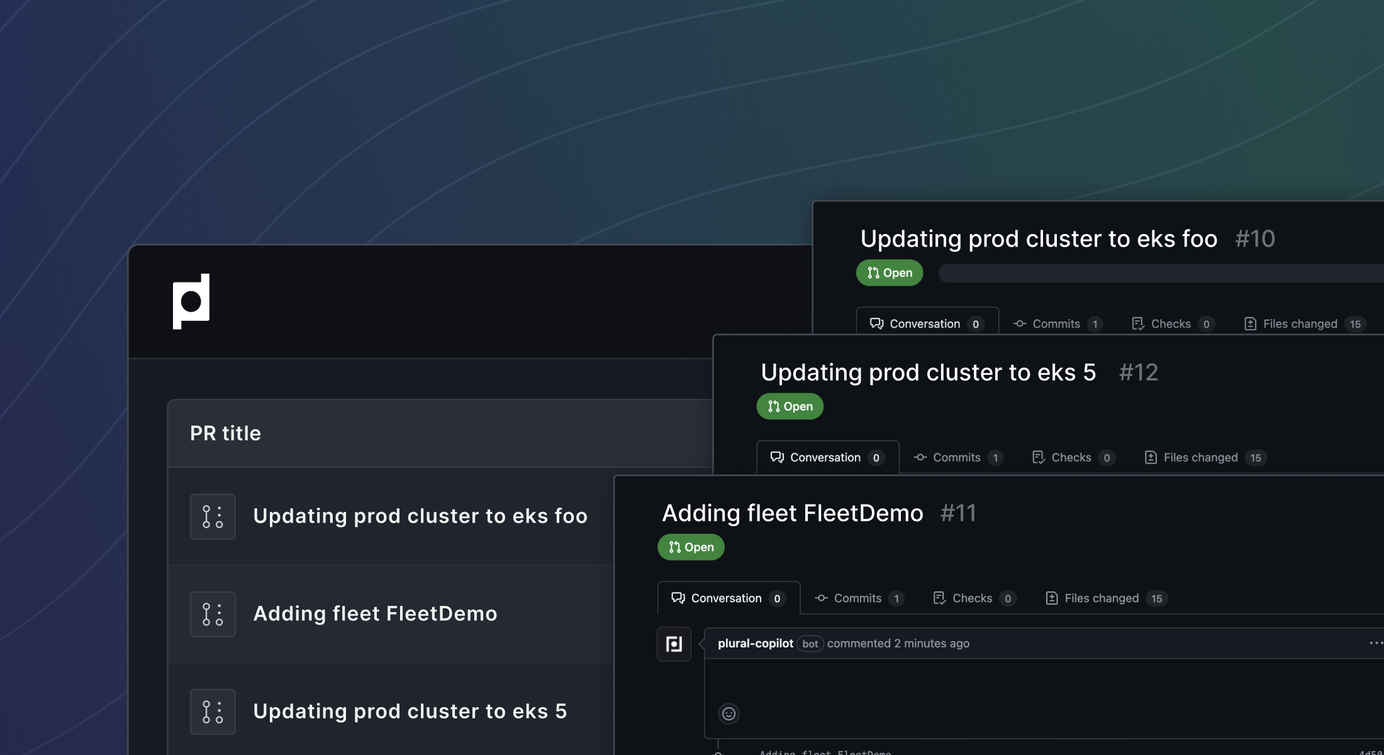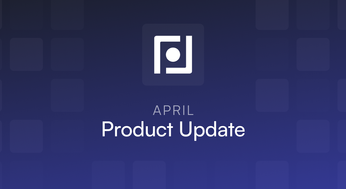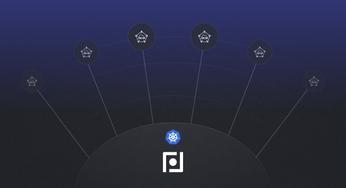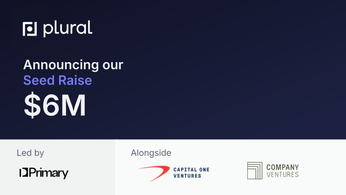
Modern Fleet Management Marketplace for Kubernetes
Explore Plural's strategic shift from a marketplace to a fleet management platform, enhancing Kubernetes operations with a robust fleet management marketplace.
Table of Contents
Kubernetes has revolutionized how we deploy and manage applications, but it has also introduced new challenges, especially when dealing with multiple clusters. Keeping track of deployments, managing upgrades, and ensuring consistency across a fleet of Kubernetes clusters can quickly become overwhelming. It's like trying to conduct an orchestra with musicians scattered across different continents – each playing their own tune. This is where the need for a unified fleet management marketplace becomes clear. This post will share Plural's journey from an open-source marketplace to a Kubernetes fleet management platform, highlighting the pivotal moments that shaped our vision and the solutions we developed to address the growing complexity of managing Kubernetes at scale. We'll explore how a fleet management marketplace approach can streamline operations, improve efficiency, and empower DevOps teams to manage their Kubernetes infrastructure with confidence.
Starting a company is like a roller coaster ride: it's packed with twists and turns, highs and lows. Today, I'm excited to share a pivotal moment in our journey from Plural the Opensource Marketplace to Kubernetes Fleet Management.
Connecting Fleet Operators with Technology Providers
Connecting fleet operators with the right technology providers is crucial for optimizing operations. Think of it like building a well-oiled machine: you need all the right parts working together seamlessly. Platforms like SafeTruck are creating comprehensive fleet marketplaces, acting as a central hub where fleet operators can connect with a diverse range of suppliers. This streamlined approach not only boosts efficiency but also opens doors to significant cost savings by consolidating essential products and services into a single marketplace. This simplifies vendor management and allows fleet operators to focus on their core business.
Streamlining Procurement and Integration
Beyond simply connecting operators and providers, streamlining procurement and integration is paramount for modern fleet management. The Geotab Marketplace offers a prime example, providing over 350 integrated tools designed to enhance fleet management through seamless integration with Geotab's telematics system. This breadth of choice empowers fleet managers to tailor their systems precisely to their needs, ensuring they have the right tools at their fingertips. This competitive landscape also drives better deals and lower prices, making it easier for fleet operators to access essential technology without breaking the bank. Much like Plural simplifies the complexities of Kubernetes management, these marketplaces simplify the procurement process for fleet operators, allowing them to focus on what matters most: efficient and cost-effective operations. By integrating various tools and services, fleet managers can gain a holistic view of their operations, from vehicle tracking and maintenance to driver behavior and fuel efficiency. This integrated approach enables data-driven decision-making and ultimately contributes to a more streamlined and profitable business.
Is Your Fleet Management Strategy Built to Scale?
In 2022, we launched Plural with the ambition to streamline the deployment and management of open-source solutions using Kubernetes. While we quickly amassed hundreds of users, the challenge of managing a multitude of Kubernetes clusters for these users introduced significant operational friction.
The more our user base grew, the more apparent it became that manually managing Kubernetes at scale was becoming a bottleneck. By January 2023, we realized that our engineering velocity was being hampered by an unsustainable operational workload, especially during Kubernetes upgrades—a critical but resource-intensive task.
Challenges of Scaling Traditional Fleet Management
Just as traditional fleet management systems struggle with issues like spotty GPS and geocoding inaccuracies, managing a fleet of Kubernetes clusters presents its own set of scaling challenges. These challenges are amplified when dealing with the complexities of open-source software deployments. Each application often requires a unique configuration, specific resource allocation, and ongoing maintenance. As the number of clusters and deployed applications grows, so does the operational overhead, leading to slowdowns in deployment cycles, increased risk of errors, and difficulty in maintaining consistent configurations across the entire fleet. Much like weak GPS signals hinder a trucking company's ability to optimize routes, inconsistent configurations and manual processes can prevent a platform engineering team from effectively managing their Kubernetes infrastructure.
The Need for a Centralized, Scalable Solution
This growing complexity demanded a centralized, scalable solution. Similar to how SafeTruck's fleet marketplace connects operators with suppliers, we envisioned a platform to streamline the management of our expanding Kubernetes fleet. We needed to automate deployments, ensure configuration consistency, and simplify upgrades across all clusters. This centralized approach, echoing the customizable solutions offered in the Geotab Marketplace, would let us tailor management strategies to each application's specific needs while maintaining a unified view of our entire infrastructure. This realization prompted our pivot from the open-source marketplace to building Plural, a Kubernetes fleet management platform designed to address these very challenges.
Evolving Plural's Approach to the Fleet Marketplace
As we delved deeper into the problems with Kubernetes, particularly the upgrades, it became evident that existing tooling in the space was inadequate and fragmented. Building for Kubernetes requires a variety of tools, and whilst managed control planes have made it easy to spin up more clusters rapidly - the increase in the number of clusters has created a large management problem to solve.
Kubernetes upgrades are notoriously complex, involving careful coordination of multiple components and risking significant downtime if not executed properly. This complexity is magnified at scale, where small errors can lead to major disruptions.
Our breakthrough moment came during a discovery meeting with a Fortune 500 leader in cybersecurity, who echoed our experiences with the difficulties of Kubernetes upgrades. We listened as they told us it took multiple person-months to complete upgrades across their fleet of clusters. This wasn't just validation—it was a profound alignment of challenges. Spurred by this learning, we engaged in hundreds more discovery calls, confirming that efficient Kubernetes management was indeed a critical pain point for many businesses, especially larger enterprises. Each conversation unveiled a broader landscape of opportunity, emphasizing the need for a specialized solution that could handle these complexities more effectively.
From Open Source Catalog to Unified Fleet Management
Our initial focus on an open-source catalog was valuable, but it didn't solve the core problem of managing Kubernetes at scale. We needed to shift from simply providing open-source applications to offering a comprehensive solution for managing the entire Kubernetes lifecycle. This meant building tools to deploy applications *and* handle upgrades, security, and the day-to-day operational complexities of Kubernetes.
This realization coincided with growing market demand for efficient fleet management solutions. As MarketsandMarkets projects, the global fleet management market is expected to reach $55.6 billion by 2028, growing at a CAGR of 14.2%. This underscored the need for tools like Plural, designed to simplify and automate the management of complex Kubernetes deployments.
Integrating Kubernetes Management with the Marketplace
The next step was integrating our understanding of Kubernetes management with the existing marketplace concept. We saw an opportunity to create a unified platform where users could discover and deploy open-source applications *and* manage the underlying Kubernetes infrastructure efficiently. This meant streamlining processes like upgrades—a previous major pain point—and providing a centralized dashboard for visibility and control.
This integrated approach aligns with broader industry trends. MarketsandMarkets highlights how companies are increasingly using fleet management systems to reduce costs, enhance safety, and meet regulatory requirements. The report also emphasizes the transformative impact of technologies like IoT, 5G, and cloud computing on fleet management, reinforcing our decision to build a cloud-native solution for Kubernetes.
Plural's Vision for the Future of Fleet Management
At Plural, we envision a future where managing Kubernetes is as simple and intuitive as using any other cloud service. We're building a platform that abstracts away the complexities of Kubernetes, allowing businesses of all sizes to leverage its power without needing deep in-house expertise. This includes providing self-service capabilities, automated workflows, and AI-driven insights to simplify tasks like troubleshooting and optimization. Book a demo to see how Plural can help your team.
We see this trend reflected in the broader market. MarketsandMarkets predicts rapid growth in adopting fleet management systems within the retail industry, suggesting wider adoption across various sectors, including technology and open-source. This aligns with platforms like SafeTruck's fleet marketplace, which connects fleet operators with diverse suppliers, fostering competition and potentially driving down costs. We believe this marketplace model, combined with robust Kubernetes management capabilities, is the future of fleet management. See our pricing to learn more.
Plural's Product: A New Direction for Fleet Management
Fueled by our design partner's enthusiasm and our own hard-earned insights, we pivoted completely. We shifted from being a marketplace to creating a cutting-edge fleet management platform specifically designed for Kubernetes. This wasn’t just a new product; it was a whole new direction. Our original platform wasn't scrapped but transformed, serving as the foundation for our new architecture. Within months, we signed our design partner as our first major customer, and our pipeline exploded, a clear signal we are solving a real problem in the space.
Key Features and Benefits of Plural for Fleet Management
Simplified Kubernetes Management
Plural simplifies Kubernetes management by consolidating all your clusters into a single pane of glass. Instead of juggling multiple kubeconfigs and contexts, you can manage deployments, upgrades, and configurations across your entire fleet from one unified interface. This streamlines operations, reduces complexity, and frees up your team to focus on building and deploying applications, rather than wrestling with infrastructure.
Centralized Control and Visibility
With Plural, you gain a centralized view of your entire Kubernetes landscape. Our dashboard provides real-time insights into the health and status of all your clusters, enabling proactive monitoring and rapid issue identification. This centralized visibility is crucial for maintaining control and ensuring the smooth operation of your applications. This consolidated approach offers a single point of access for managing diverse tools and services across your Kubernetes deployments.
Infrastructure as Code (IaC) Integration
Plural seamlessly integrates with your existing Infrastructure as Code (IaC) workflows. Our platform supports popular tools like Terraform, enabling you to manage your Kubernetes infrastructure alongside your other cloud resources. This IaC integration ensures consistency, repeatability, and automation across your entire infrastructure stack, extending automation and control to your Kubernetes deployments.
Self-Service Capabilities
Plural empowers developers with self-service capabilities for deploying and managing applications on Kubernetes. Our platform provides a streamlined workflow for deploying applications, reducing the need for manual intervention from platform teams. This self-service approach accelerates development cycles and fosters greater autonomy within engineering teams.
How Plural Addresses the Challenges of Fleet Management
Reducing Costs and Improving Efficiency
By streamlining Kubernetes management and automating key tasks, Plural helps reduce operational costs and improve overall efficiency. Centralized control, self-service capabilities, and IaC integration minimize manual effort, freeing up valuable engineering time. Plural offers a solution tailored to the unique challenges of Kubernetes, focusing on optimizing resource utilization and streamlining workflows.
Enhancing Security and Compliance
Plural enhances security and compliance by providing a centralized platform for managing access control, security policies, and compliance requirements across your Kubernetes fleet. Our platform integrates with your existing identity provider and supports role-based access control (RBAC), ensuring that only authorized users have access to sensitive resources. This centralized approach simplifies security management and helps organizations meet their compliance obligations. Plural addresses the growing need for robust security and compliance in Kubernetes, providing a secure and compliant foundation for your deployments.
Simplifying Data Management and Analysis
Plural simplifies data management and analysis by providing a unified platform for collecting, storing, and analyzing logs and metrics from your Kubernetes clusters. Our platform integrates with popular monitoring and logging tools, enabling you to gain a comprehensive view of your application performance and identify potential issues. This centralized approach to data management simplifies troubleshooting and helps organizations make data-driven decisions about their Kubernetes infrastructure. Plural leverages advancements in data analysis and monitoring to provide a modern, data-driven approach to Kubernetes management.
Key Lessons Learned
- The Complexity of Kubernetes is High: Managing Kubernetes at scale introduces significant operational friction, particularly during upgrades.
- Operational Thresholds is Surprisingly Low: Beyond five clusters, manual management becomes inefficient and prone to errors, marking a critical need for automated solutions.
- Existing Tooling is Incredible Fragmented: Traditional tooling for Kubernetes management is fragmented and outdated, primarily designed for environments with fewer clusters.
- Technological Evolution Has Caused Cluster Count Expansion: The rise of edge computing, IoT, and AI workloads has transformed the operational landscape, significantly increasing the number of clusters.
- Ease of Cluster Creation Increases Complexity: With managed control planes like EKS, AKS, and GKE making it easier to spin up clusters, the overall management complexity and the potential for operational headaches have escalated.
- High Demand for Scalable Solutions: This explosion in cluster counts highlights the urgent need for scalable, integrated management solutions that can handle the complexities of modern Kubernetes environments.
Building a Scalable and Secure Fleet Management Platform
The demand for robust fleet management solutions is exploding. MarketsandMarkets predicts the global fleet management market will reach a staggering $55.6 billion by 2028, growing at a 14.2% CAGR. This growth isn't surprising given the increasing complexity of managing distributed applications and infrastructure, especially with the rise of Kubernetes.
At Plural, we recognized early on that managing Kubernetes at scale requires a different approach. Traditional methods, often manual and fragmented, can't keep pace with the demands of modern, dynamic environments. Our platform addresses this challenge by providing a centralized, scalable, and secure solution for managing Kubernetes fleets of any size. We achieve this through an architecture that leverages a control plane for centralized management and lightweight agents deployed in each workload cluster. This approach simplifies management and enhances security by minimizing the attack surface and eliminating the need for the management cluster to hold global credentials. For a deeper dive into our architecture, check out our Architecture Page.
The Importance of User Experience and Self-Service
Effective fleet management isn't just about scale; it's about usability. A cluttered interface hinders productivity. That's why we prioritized user experience at Plural. Our platform provides a clean, intuitive interface that simplifies complex tasks, like Kubernetes upgrades. Managing your infrastructure should be straightforward, freeing your team to focus on building and deploying applications. Book a demo to see it in action.
We also recognize the importance of self-service. Similar to how SafeTruck's fleet marketplace connects operators with suppliers, our platform offers a self-service catalog. This lets developers provision and manage infrastructure components without deep Kubernetes expertise, accelerating development cycles and reducing the burden on platform teams. See our pricing plans to learn more about how self-service can benefit your organization.
Leveraging Kubernetes and Cloud-Native Technologies
Kubernetes has become the standard for container orchestration due to its flexibility, scalability, and resilience. However, harnessing its full potential requires specialized tooling. Our platform, built on Kubernetes, leverages cloud-native technologies like Cluster API for a seamless, integrated experience. This allows us to manage existing clusters and provision new ones easily, all from a single interface. Log in to explore how Plural simplifies Kubernetes management.
As MarketsandMarkets notes, technologies like IoT, 5G, and cloud computing are transforming fleet management. By embracing these technologies and integrating them with our platform, we empower customers to build and manage highly scalable, resilient, and future-proof infrastructure. Whether deploying applications to the cloud, the edge, or on-premises, Plural provides the tools you need to succeed.
The Future of Fleet Management with Plural
Today, Plural is on its way to becoming a significant player in Kubernetes fleet management. Our revised platform is crafted to reduce the complexities of managing extensive Kubernetes environments, helping businesses to focus more on innovation and less on operational logistics.
We are centralizing the core workflows you need to be successful with Kubernetes and have a ton of powerful capabilities already built into the platform:
- Stacks: Enables a GitOps strategy around your terraform, pulumi or ansible workflow, offering integrated approval workflows and hardening your terraform posture.
- Cluster Upgrade Assistant: Automates the cluster upgrade process, detects API deprecations, and checks add-on compatibilities for Kubernetes.
- Continuous Deployment: Facilitates services deployment to clusters from your Git repositories, with customization options and centralized secrets management.
- Kubernetes Dashboard: Provides a unified interface for viewing your entire fleet of clusters, equipped with resource monitoring and log viewing.
- Global Services: Ensures all clusters adhere to a consistent Software Bill of Materials (SBOM), streamlining the setup process for new clusters.
- PR Automation Driven Pipelining: Automates the code integration and deployment process across your Kubernetes fleet using pull requests.
- Policy Enforcement with OPA GateKeeper: Defines, manages, and enforces policies across your Kubernetes clusters, ensuring adherence to organizational policies and compliance requirements.
- Namespace-as-a-service: Provides a multi-tenant cluster strategy by offering hardened, pre-configured namespaces via APIs.
Expanding the Marketplace Ecosystem
Much like how SafeTruck connects fleet operators with essential suppliers, Plural understands the value of a rich ecosystem. We're dedicated to growing our marketplace, offering a curated collection of tools and services that complement and extend Plural's core functionality. This approach provides more options for our users and opens doors for technology providers to connect with a broader audience of DevOps and platform engineers. We envision a centralized hub for all your Kubernetes fleet management requirements, simplifying the process of acquiring and integrating the tools you need.
AI-Driven Insights and Automation
The world of fleet management is constantly evolving, fueled by innovations in AI, automation, and cloud-native technologies. Plural is leading the charge in this transformation, harnessing these technologies to deliver intelligent insights and automated workflows. Features like our AI-powered Cluster Upgrade Assistant and automated PR pipelines streamline complex operations, minimizing manual intervention and allowing your teams to concentrate on high-impact projects. This automation-first approach not only boosts efficiency but also minimizes the potential for human error, resulting in more stable and dependable Kubernetes operations.
Empowering DevOps and Platform Engineering Teams
Just as the Geotab Marketplace enhances their telematics system with a wide array of add-ons, Plural equips DevOps and platform engineering teams with the tools and authority they need to effectively manage Kubernetes at scale. Our platform offers a centralized, self-service experience, simplifying tasks ranging from infrastructure provisioning and application deployment to policy enforcement. By streamlining these crucial workflows, we enable teams to accelerate their pace, reduce operational burden, and concentrate on delivering value to their organizations. This empowerment fosters greater agility, improved collaboration, and a more robust and resilient Kubernetes ecosystem overall.
Building the Future of Fleet Management
Our pivot wasn't just about changing what we offer. It was a strategic move to address a bigger opportunity and solve a problem we lived with first-hand. We’re passionate about what we do and thrilled about what lies ahead. Stay tuned! We can't wait to keep you posted as we dive deeper into this thrilling new chapter.
Partnering with Industry Leaders
Building a robust fleet management platform isn't a solo endeavor. We recognize the value of collaboration and actively seek partnerships with industry leaders to enhance Plural's capabilities and provide comprehensive solutions for our users. As MarketsandMarkets research points out, businesses are increasingly relying on fleet management systems to optimize costs, enhance safety, and ensure compliance with evolving regulations. By partnering with established players in areas like security, compliance, and infrastructure, we can offer a more integrated and effective experience. These partnerships allow us to leverage specialized expertise and integrate best-in-class technologies into our platform, ultimately delivering greater value.
Investing in Innovation and R&D
At Plural, we're committed to staying ahead of the curve. The fleet management landscape is constantly evolving, driven by advancements in areas like IoT, 5G, and cloud computing. We invest heavily in R&D to ensure our platform remains at the forefront of innovation. This includes exploring and integrating emerging technologies like policy-as-code to enhance our platform's capabilities, improve scalability, and provide cutting-edge solutions. Our focus on innovation allows us to anticipate and address the future needs of fleet management, providing the tools you need to succeed in a dynamic environment.
Driving the Adoption of Modern Fleet Management Practices
We believe that modern fleet management practices are essential for businesses to thrive. The rapid growth of e-commerce, coupled with increasing regulatory pressures, has made efficient fleet management more critical than ever. Plural is committed to driving the adoption of these modern practices by providing a platform that simplifies complex workflows, automates key processes, and offers actionable insights. We aim to empower businesses across various sectors, particularly those experiencing rapid growth like retail, to embrace modern fleet management and unlock its full potential. Our platform is designed to be intuitive and accessible, making it easier for businesses of all sizes to implement and benefit from these advanced practices.
Unified Cloud Orchestration for Kubernetes
Manage Kubernetes at scale through a single, enterprise-ready platform.
Related Articles
- Cattle Not Pets: Kubernetes Fleet Management
- Plural | Kubernetes Management
- Kubernetes Cluster Management: A Practical Guide
- Kubernetes Cluster Upgrade Cycles: A Practical Guide
Unified Cloud Orchestration for Kubernetes
Manage Kubernetes at scale through a single, enterprise-ready platform.
Frequently Asked Questions
Why did Plural shift from an open-source marketplace to Kubernetes fleet management?
Managing numerous Kubernetes clusters for our open-source marketplace users created significant operational overhead. We found that our initial focus, while valuable, didn't address the core challenges of scaling Kubernetes, especially upgrades. This, coupled with increasing market demand for robust Kubernetes management solutions, led us to pivot and build a dedicated platform.
How does Plural simplify Kubernetes upgrades?
Plural's Cluster Upgrade Assistant automates the upgrade process, including dependency checks and API deprecation analysis. This reduces manual effort, minimizes downtime, and ensures a smooth transition across your entire Kubernetes fleet. It also helps address the fragmentation of existing tooling by providing a unified platform for managing upgrades.
What are the key benefits of using Plural for Kubernetes fleet management?
Plural provides centralized control and visibility across all your clusters, simplifies deployments and configurations, integrates with existing IaC workflows, and offers self-service capabilities for developers. This streamlines operations, reduces costs, enhances security, and empowers development teams.
How does Plural's architecture enhance security?
Plural uses a secure agent-based architecture. Lightweight agents, deployed in each workload cluster, communicate with a central control plane via egress-only networking. This eliminates the need for the management cluster to store global credentials, minimizing the attack surface and improving overall security posture.
What is Plural's vision for the future of Kubernetes fleet management?
We aim to make Kubernetes management as simple and intuitive as any other cloud service. We're continuously investing in innovation, including AI-driven insights and automation, to simplify complex tasks and empower organizations to fully leverage the power of Kubernetes without needing deep in-house expertise. We also plan to expand our marketplace ecosystem to offer a wider range of integrated tools and services.
Newsletter
Join the newsletter to receive the latest updates in your inbox.









